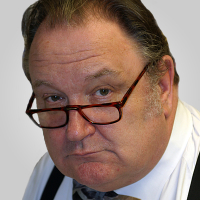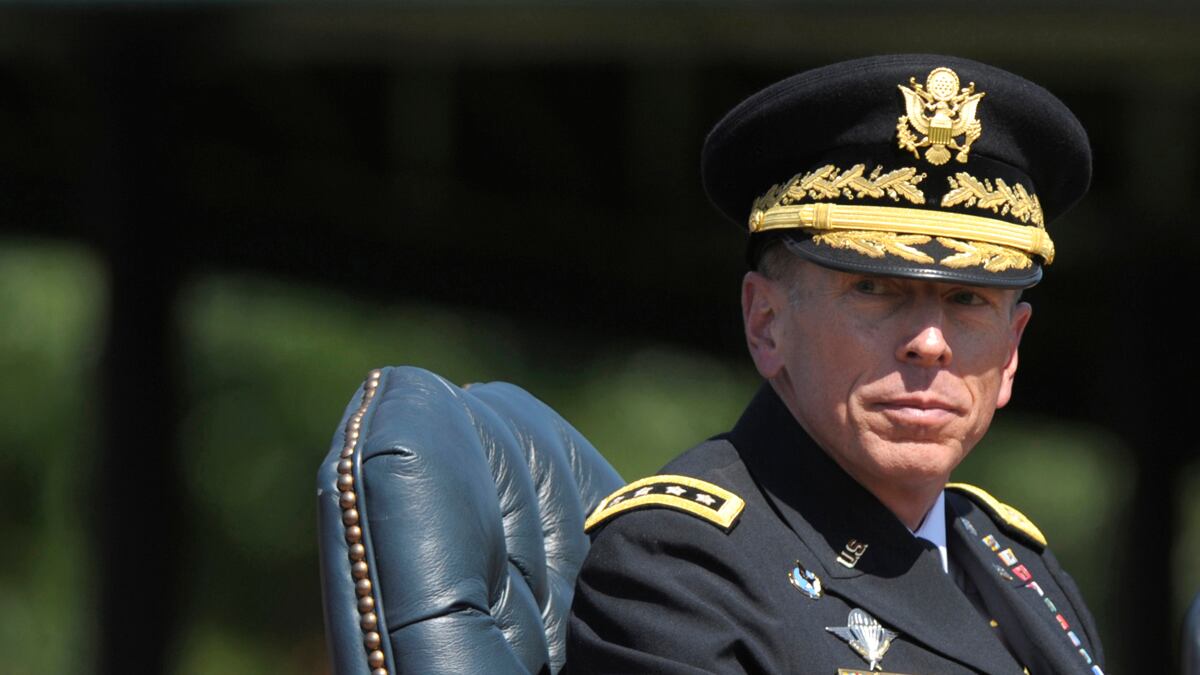The Obama administration has hailed Gen. David Petraeus as one of history’s greatest military strategists, whose stewardship of two difficult, prolonged wars won bipartisan praise. But when it came to his military retirement ceremony last week, few of the political brass could find the time to attend.
President Barack Obama was in town, but didn’t show up. He chose to make a personal call to express his gratitude to Petraeus after 37 years of military service. But a call is not the same as attendance.

No Joe Biden, either, even though ceremonies are the usual fare for vice presidents. Not even Petraeus’ civilian boss and soon-to-be fellow Cabinet colleague, Defense Secretary Leon Panetta, made it. (A Pentagon spokesman explained Panetta was on a long-planned trip.) A quick scan of the nearly 1,000 people in the audience made clear that senators, congressmen and foreign diplomats far outnumbered Obama aides. In fact, the highest-ranking civilian in attendance was Deputy Defense Secretary William Lynn.
It was a far cry from the sendoff for Gen. Colin Powell in a 1993 ceremony that drew two presidents and the defense Secretary. So was it a snub?
Petraeus isn’t likely to think so. After all, he didn’t need all the fuss, since he’s going right back to work for Obama in his new job as CIA director. And it was the last week in August, just before the Labor Day holiday, when many Washingtonians were away.
Still, the meager political turnout was a not-so-subtle reminder that this White House has had its suspicions about Petraeus, even as it relied on him to take on the Iraq War, and then Afghanistan. Some worried Petraeus might run in 2012 for president, a fear he worked to allay. Early in the administration, he assured Rahm Emanuel, Obama’s then chief of staff, that he had no political ambitions.
Perhaps then, the White House just had a bad week of etiquette. After all, it also scheduled Obama’s big job speech the same night as the big GOP presidential debate at Ronald Reagan’s library, a move that infuriated Republicans and forced the president to reschedule.
Whatever the case, presidential aides did their best to put a happy spin on the Petraeus farewell. Obama had phoned the general to congratulate him on “an historic career of service” and “extraordinary contributions to our national security in Iraq and Afghanistan,” the White House trumpeted in a press release.
Petraeus seemed to revel in the ceremony on a cloudless Wednesday morning at Northern Virginia’s Fort Myers installation, just across a gleaming Potomac from Washington. Close to 1,000 guests fanned their programs in the summer heat: family and friends; alumni from Petraeus’s West Point class of ’74; comrades from the divisions he had served in; the current chiefs of staff; and a corps of retired generals who’d been his commanders or mentors.
On the great lawn at the heart of Fort Myers, the 17-gun salute Petraeus warranted as a four-star general thumped across the field to herald the band, the colors, the parade. Afterward, a line of people queued around the block to shake hands with Petraeus and his wife Holly at a reception in the officers’ club.
Few dispute that Petraeus helped rescue the American effort in Iraq from looming defeat. He then stepped in to take command in Afghanistan when Gen. Stanley McChrystal was felled by the indiscreet remarks of his staff in a Paris bar.
When Obama, at a hasty one-on-one in the Oval Office in June last year, said to Petraeus, “I am asking you, as your president and commander in chief, to take command in Afghanistan," Petraeus’s reply was: “In response to that, there can be only one answer: Yes sir.”
In doing so, Petraeus stepped down a rung in the military hierarchy, from the combatant commander of Central Command to command in a single theater. The sacrifice was more than formal: Petraeus took a 10 percent pay cut, which means now a corresponding reduction in his pension. It didn’t occur to him to refuse the president’s request, Petraues told The Daily Beast in an interview recently.
It’s too early to tell if Petraeus’s stint in Kabul has turned the tide in Afghanistan. It’s even more premature to forecast how he will fare as director of the CIA, where he arrives this week. About the only thing certain is he doesn’t seem to harbor any ambition for the political ring. He renounces political ambition on grounds of principle: he doesn’t think generals should use their rank to claim credibility among a civilian electorate—not even in support of candidates, still less to run for office themselves.
Admiral Mike Mullen, the retiring chairman of the joint chiefs, missed the point in his affectionate speech at Petraeus’s ceremony.
"You now stand among the giants not just in our time but of all time, joining the likes of Grant and Pershing and Marshall and Eisenhower as one of the great battle captains of American history," he told Petraeus. Ceremonial hyperbole aside, those comparisons are, of course, preposterous. Petraeus himself rejects them.
As he prepared to leave Kabul a few weeks ago, he was asked about comparisons to Eisenhower. "I don’t take them seriously," he replied. Gesturing out the window at the headquarters compound of the multinational force scrambling to defeat a peasant insurgency in Afghanistan, he said, "This is not the great crusade"—what Eisenhower called the liberation of western Europe in World War II.
Petraeus, to what seems his occasional regret, never had the opportunity those giants had to command hundreds of thousands of soldiers in all-out combat. His real importance is that he became the standard-bearer of a new generation of officers bred in the decade of war since Sept. 11, 2001. They’re clever, highly educated at the military’s expense—Petraeus earned a PhD under the tutelage of a famously tough Princeton professor—and politically savvy. They’re also supremely confident that they have the training to debate questions of national security quite as well as any civilian politician. And, learning from what they see as the Army’s failures in Vietnam, they view it as their duty to do this. It was no surprise that Petraeus in his own speech at the ceremony warned bluntly against steep cuts in the defense budget.
Whether the tenets of counterinsurgency warfare famously codified by Petraeus in Field Manual 3-24 offer America’s land-forces a viable model of future combat is passionately debated inside the military.
Will the American people really support future decade-long nation-building efforts, the critics ask? The salient point is that the manual taught a generation of officers bloodied in Iraq and Afghanistan the overriding importance of politics in the field and at home.






